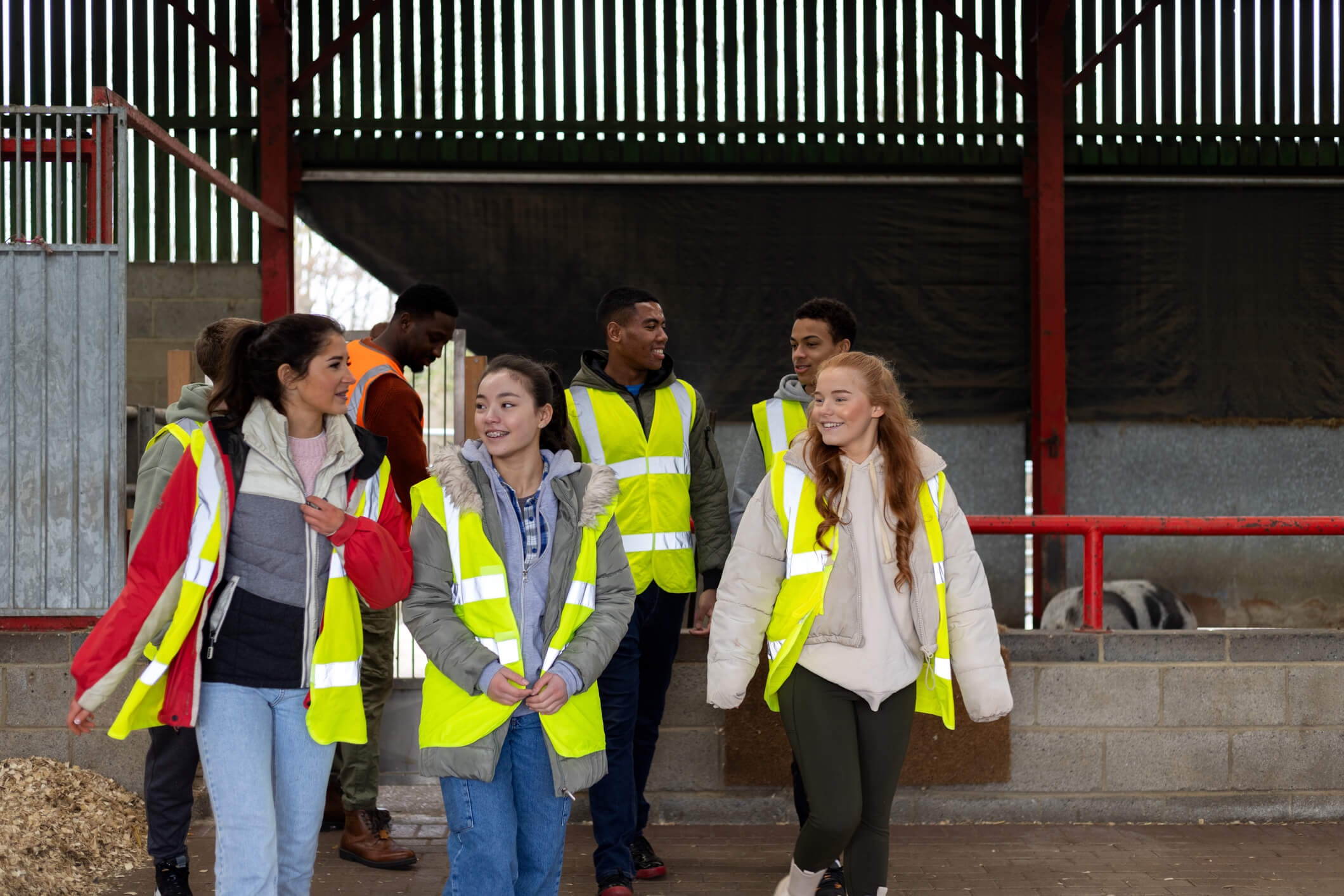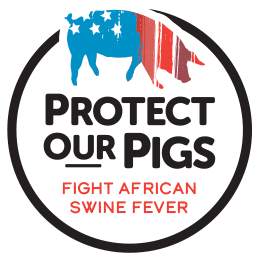Your Part
Showing swine takes hard work and dedication every day. The things you do to keep your pigs healthy are important for a successful project year.
But did you know that you also play an important role in keeping all pigs in the United States healthy? Even if you only raise one pig, you are a crucial part of keeping swine diseases like African swine fever (ASF) from spreading.

Why It Matters
ASF is a deadly pig disease that spreads fast and hurts both domestic and wild swine. It will not harm humans, but if the virus came to the United States, it would devastate America’s swine herd, pork industry, and food supply.
This means many people’s jobs and farms are at stake!
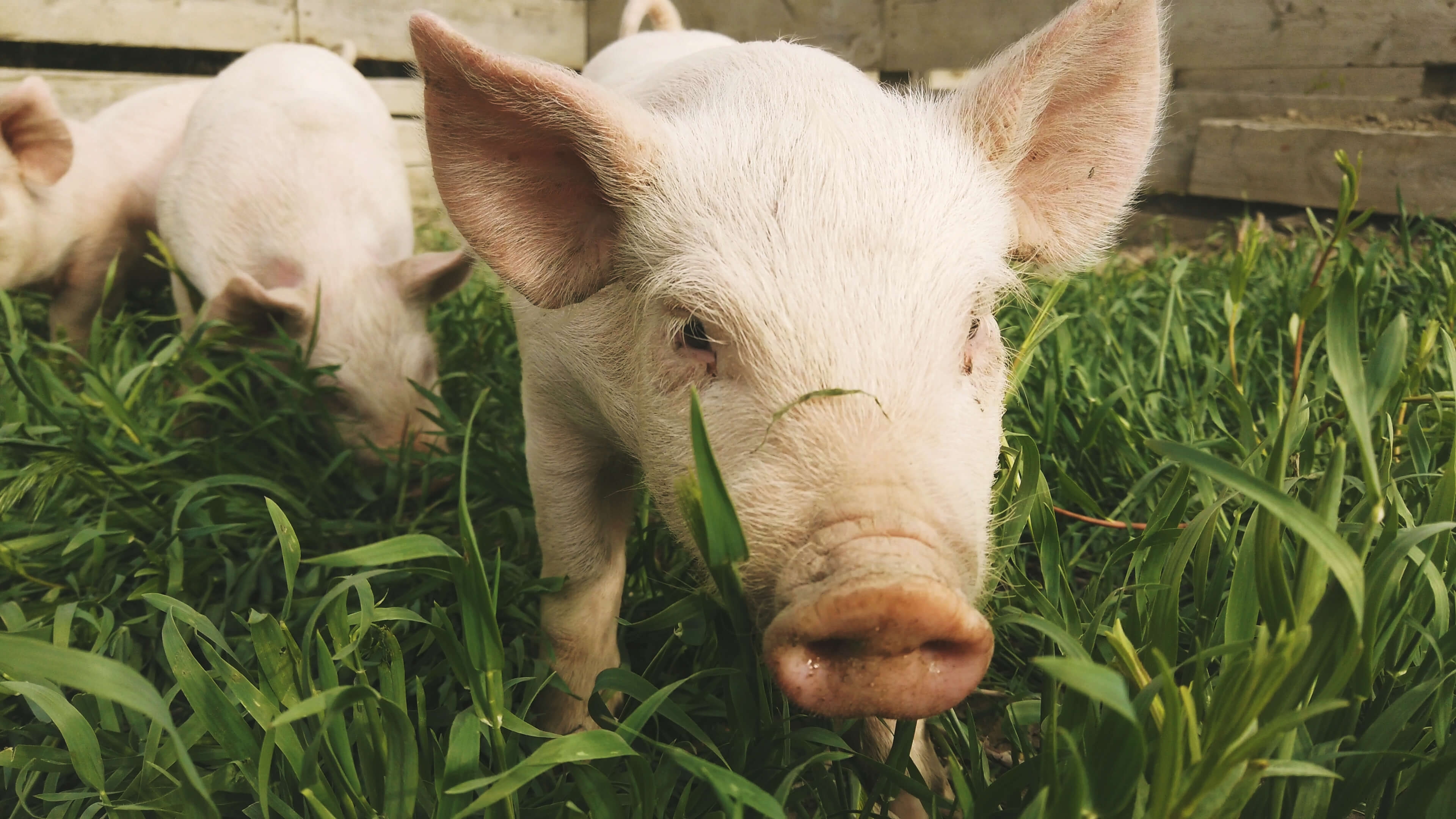
Guides and Resources
What Can You Do?
Work with a club leader, teacher, or parent to make sure your project pigs are healthy from the start. If you raise your pig from birth, make sure the breeding stock or delivered pig semen is healthy.
Before you purchase it, ask about your pig's complete health history, including history of any disease your pig or the farm has had.

Work with a club leader, teacher, or parent to make sure your project pigs are healthy from the start. If you raise your pig from birth, make sure the breeding stock or delivered pig semen is healthy.
Before you purchase it, ask about your pig's complete health history, including history of any disease your pig or the farm has had.

Create a biosecurity plan with the help of experts such as veterinarians, teachers, and club leaders. Check out this biosecurity factsheet to help you get started.

Create a biosecurity plan with the help of experts such as veterinarians, teachers, and club leaders. Check out this biosecurity factsheet to help you get started.

Make sure you have a veterinarian who is willing to see pigs. If you see signs your pig is sick, call the veterinarian.

Make sure you have a veterinarian who is willing to see pigs. If you see signs your pig is sick, call the veterinarian.

Take key sanitation steps before, during, and after shows to keep your pig and others safe. Keep pig pastures, housing, and your farm clean. Dispose of manure and dead animals properly. Clean and disinfect equipment every day or after use.
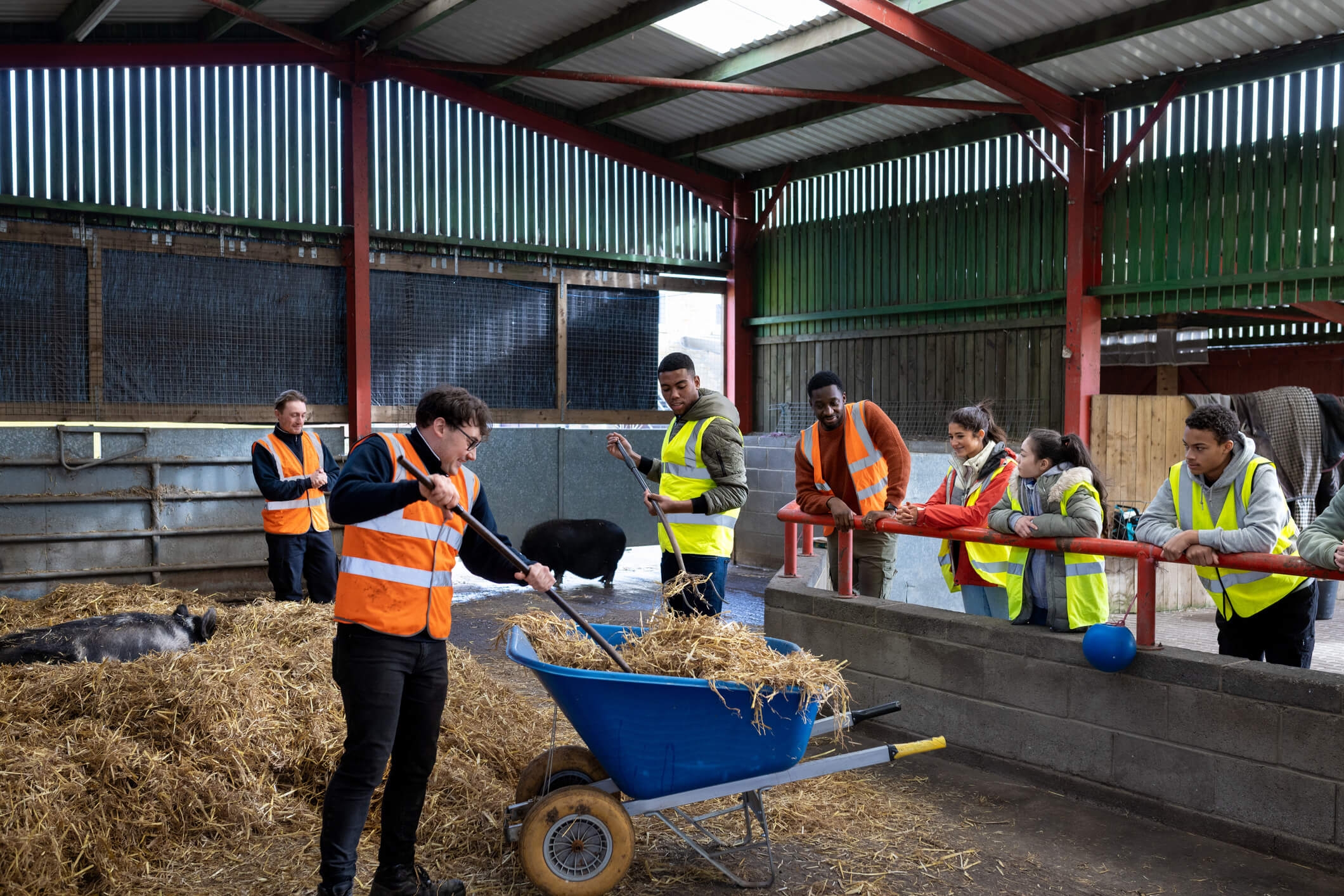
Take key sanitation steps before, during, and after shows to keep your pig and others safe. Keep pig pastures, housing, and your farm clean. Dispose of manure and dead animals properly. Clean and disinfect equipment every day or after use.

Even if you do not bring pigs home after a show or event, it is crucial to properly clean your supplies, equipment, and clothing. Diseases like ASF can survive on equipment and supplies and may spread to your farm.
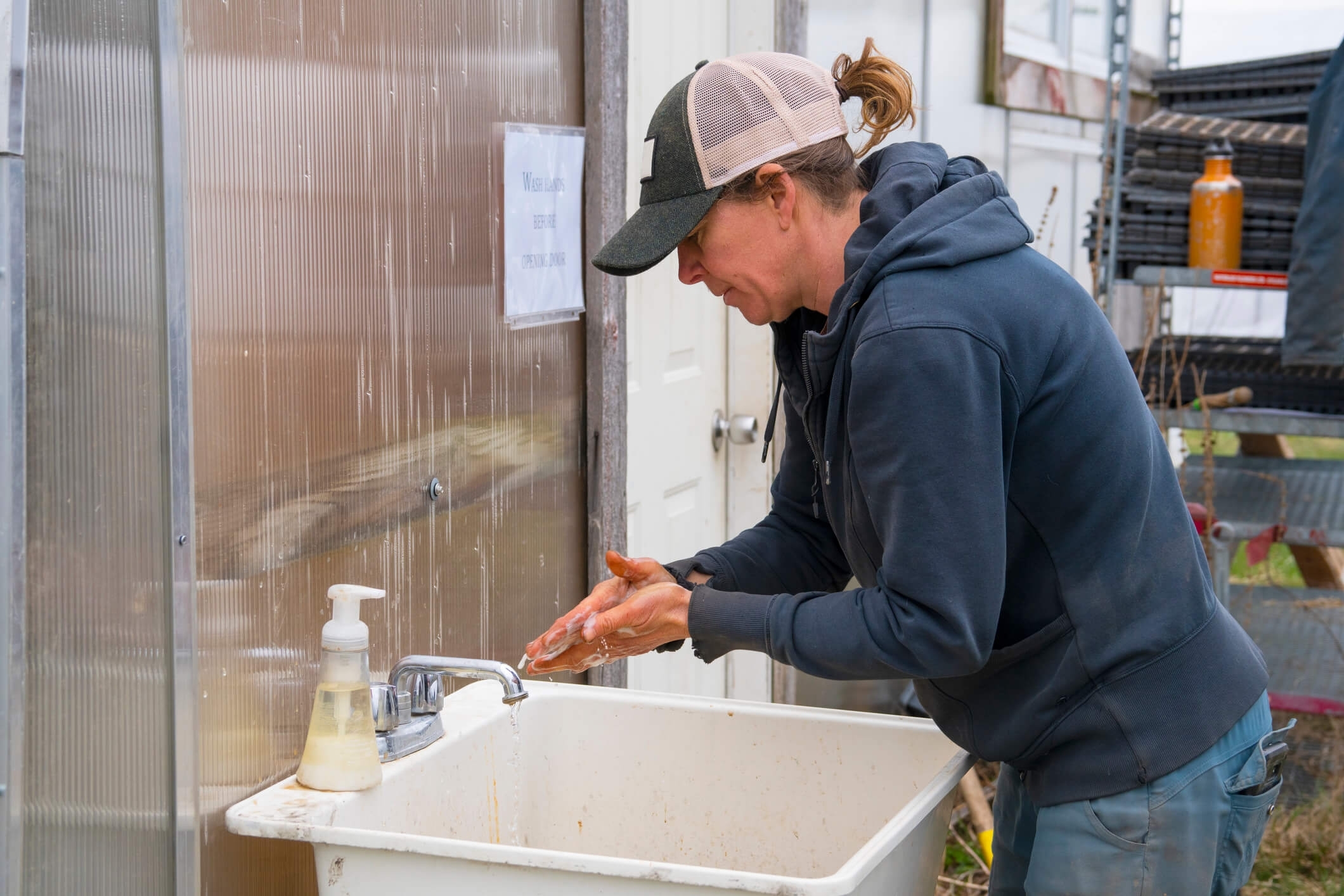
Even if you do not bring pigs home after a show or event, it is crucial to properly clean your supplies, equipment, and clothing. Diseases like ASF can survive on equipment and supplies and may spread to your farm.



